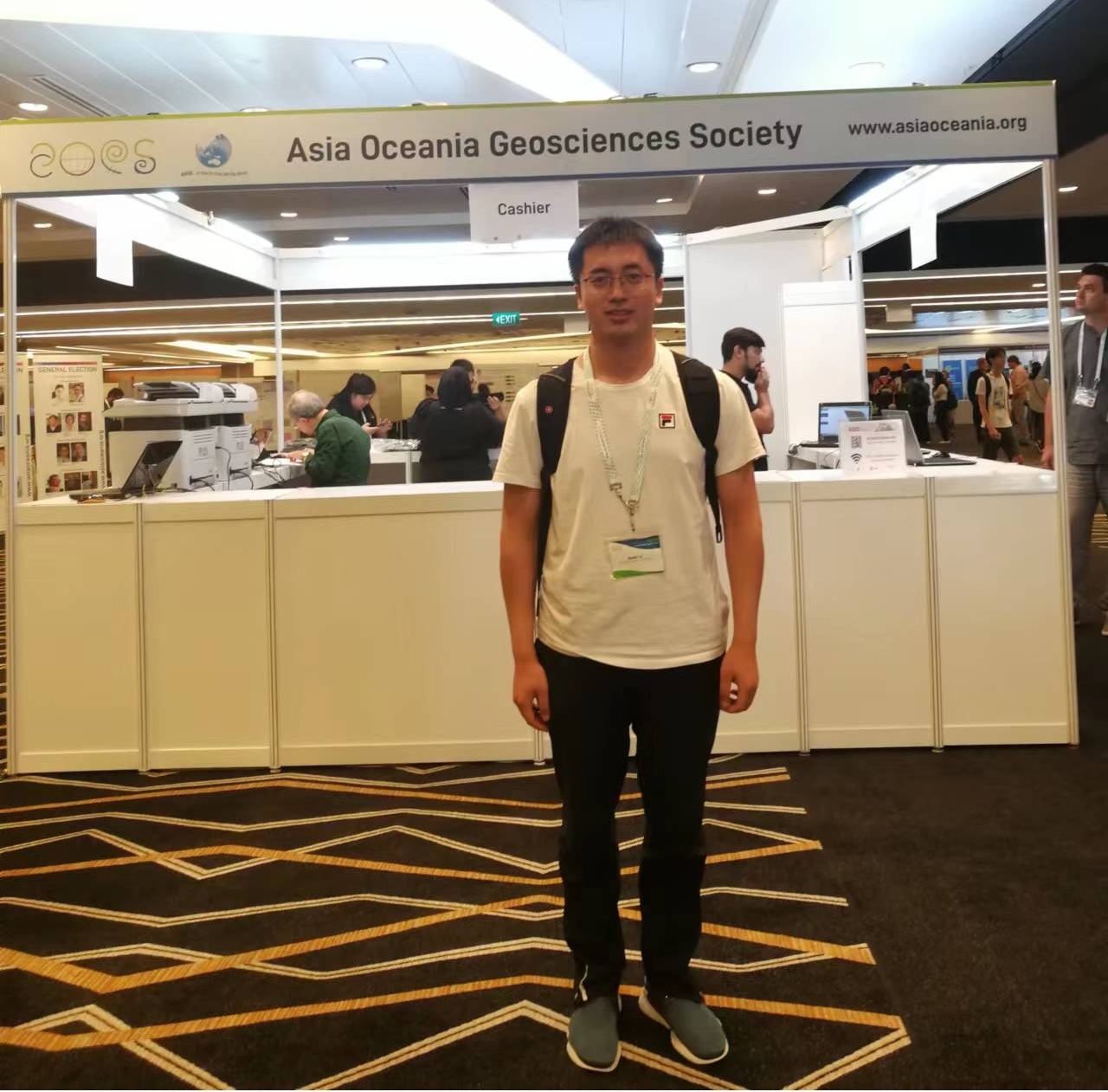(Text by LI Delei, deleili@qdio.ac.cn)

Delei was attending the Asia Oceania Geosciences Society (AOGS) annual meeting. Credit: Institute of Oceanology, Chinese Academy of Sciences
The increasing frequency and intensity of extreme events in the atmosphere and oceans under global warming pose a significant threat to human society. These events, such as heatwaves, droughts, storm surges, and compound extremes, have the potential to cause widespread damage, disrupt essential infrastructure, and exacerbate food and water scarcity, particularly in vulnerable communities residing in coastal regions or islands. Therefore, understanding the extreme patterns, changes, and related mechanisms is of utmost importance.
I'm a research scientist at the Institute of Oceanology CAS (IOCAS) whose research focuses on the atmosphere and ocean extremes under global warming. In 2016, I obtained Ph.D. from Hamburg University in Germany, where my research centered on high-resolution regional climate reconstruction, evaluation, and application, laying the groundwork for my future studies.
After completing doctorate, I joined the Key Laboratory of Ocean Circulation and Waves IOCAS as a postdoctoral fellow and subsequently as a research scientist.
My contribution to the field includes introducing a new sea surface roughness scheme into a wave-atmosphere coupled model that significantly improved its ability to simulate super typhoons. I also conducted research on the projected changes in wind energy, strong wind speeds, and extreme ocean waves under global warming over the Coordinated Regional Downscaling Experiment (CORDEX)-East Asia region or in the Chinese marginal seas, by using high-resolution regional model simulations. Additionally, I revealed the climatology, variability, and drivers of compound extreme wind and precipitation events (CWPEs) across the Indo-Pacific region. This study is the first one to quantify the contributions of different weather systems to the climatological mean and long-term of CWPEs.
Moreover, I conducted research on the attribution of extreme events to climate change. Through the use of the Coupled Model Intercomparison Project Phase 6 (CMIP6) climate models and statistical analyses, my colleagues and me have demonstrated that the 2021 northwest Pacific marine heatwave was favored by the atmospheric and oceanic conditions; changes in the mean climate due to anthropogenic warming made the event 43 times more likely.
Looking forward, my research will continue to focus on understanding the atmosphere and ocean extremes. By shedding light on the changes of extremes and the underlying mechanisms, my work has the potential to inform policy decisions and help society prepare for a more uncertain and challenging future.
(Editor: ZHANG Yiyi)

